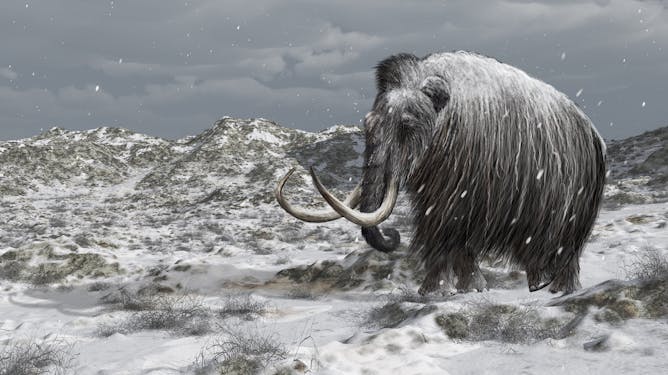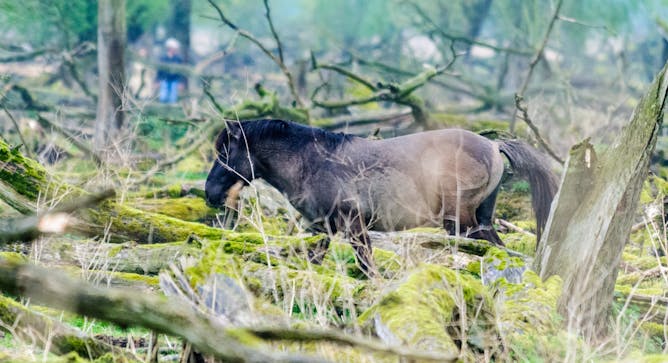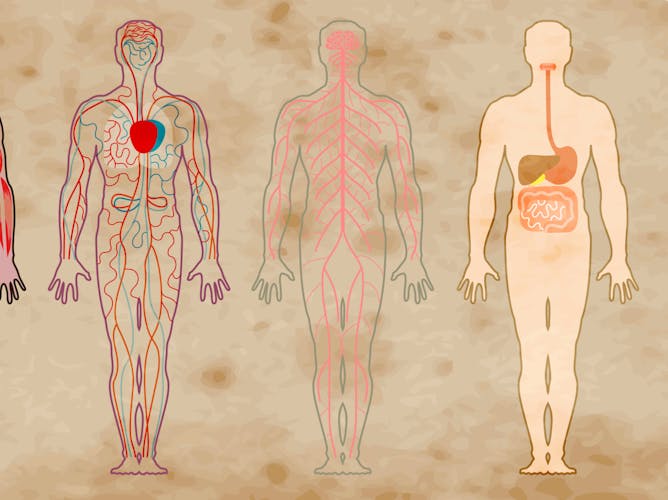|
|
|
Editor's note
|
|
If bringing back mammoths from the dead wasn’t enough of a feat, the scientists hoping to resurrect a hybrid version of the Ice Age giant think doing so could help limit greenhouse gas emissions in the Arctic. They argue the mammoth-like creatures would disturb the tundra landscape in a way that would keep carbon trapped in the ground. Paul Mann has visited a Siberian park where other animals have already been introduced to try to accomplish a similar goal, and its early success suggests resurrecting mammoths to tackle climate change might not be as outlandish an idea as it first seems.
Meanwhile, another attempt to bring back wildlife isn’t going so well. Protests erupted in the Netherlands after images of starving animals emerged from a “rewilding” project near Amsterdam. Activists have even been throwing bales of hay over the fence for hungry wild cattle and horses. But rewilding itself is not the problem, argues Paul Jepson.
Most people think of schizophrenia as a disease of the brain, but a new review by Toby Pillinger suggests that there are just as profound changes to other body organs at the onset of the disease. This might explain why people with schizophrenia die 15 to 20 years earlier than the average person. He unpicks what the review findings mean.
When Israel bombed Iranian military installations in Syria last week, the man who broke the news to the world was the country’s defence minister, Avigdor Lieberman. A hawkish right-winger with a track record of belligerent rhetoric against Iran, he is known for his uncompromising views on the Palestinian issue and his poisonous relationship with Prime Minister Benjamin Netanyahu. Yaniv Voller explains what makes Lieberman so important.
|
Stephen Harris
Commissioning + Science Editor
|

|
|
Top stories
|

Shutterstock
Paul Mann, Northumbria University, Newcastle
A 20-year-old experiment is testing whether filling the Arctic tundra with animals could keep carbon trapped in the ground.
|

Goldilock Project / shutterstock
Paul Jepson, University of Oxford
A reserve near Amsterdam lost many wild cattle and deer over the tough winter, leading to public protests. Yet this was a failure of Dutch politics rather than rewilding itself.
|

777888/Shutterstock.com
Toby Pillinger, King's College London
The physiological changes at the onset of schizophrenia are as marked as the mental changes, new study finds.
|

EPA/Abir Sultan
Yaniv Voller, University of Kent
Hugely divisive and controversial at home, Avigdor Lieberman is both an outspoken hawk and a political opportunist.
|
Politics + Society
|
-
Daniel Cookney, University of Salford
The Atelier Populaire produced many of the iconic images of the student and worker movement that gripped France 50 years ago.
-
Dan Lomas, University of Salford
Letters of apology are welcome but where is the official inquiry into claims of ill-treatment and rendition by Britain’s spies?
-
Wyn Bowen, King's College London; Matthew Moran, King's College London
After decades of deadly enmity, Libya and the West made a major breakthrough on weapons of mass destruction. How?
-
Kevin Hearty, Queen's University Belfast
The British cabinet is split over whether to impose a statue of limitations on investigations into alleged crimes by former soliders in Northern Ireland.
|
|
Business + Economy
|
-
Negar Habibi, King's College London
It largely depends on whether Europe will decide to ignore (and pay the price for) US sanctions.
|
|
Environment + Energy
|
-
Sylvia Jaworska, University of Reading
I analysed 15 million words written by major oil companies and found their usage of 'climate change' peaked a decade ago.
|
|
Arts + Culture
|
-
Helen Cowie, University of York
From its origin in the early 19th century, lion taming has elicited both awe and horror.
|
|
Cities
|
-
Aisling O'Loghlen, Northumbria University, Newcastle
City authorities can take straightforward measures to help refugees settle into cities – and help existing residents at the same time.
|
|
Science + Technology
|
-
Jonathan Saunders, Sheffield Hallam University
Virtual reality, augmented reality and serious games can help train people to respond to terrorism and kidnappings.
-
Adam Barrett, University of Sussex
Consciousness final frontier of science?
|
|
Health + Medicine
|
-
Darren J. Edwards, Swansea University
OMT can reduce anxiety and improve self-care too.
-
Connor Bamford, University of Glasgow
If the past is anything to go by, the DRC will effectively deal with the current Ebola outbreak. But that doesn't mean we should be complacent.
|
|
| |
Featured events
|

|
G11, Henley Business School, Whiteknights campus, University of Reading, Reading, Reading, RG6 6AH, United Kingdom — University of Reading
|

|
Lakeside Theatre, Wivenhoe Park, Colchester, Essex, CO4 3SQ, United Kingdom — University of Essex
|

|
Dover Street Building, The University of Manchester, Manchester, Manchester, M13 9PL, United Kingdom — University of Manchester
|

|
Victoria Gallery & Museum, LIVERPOOL, Aberdeenshire, L69 3DR, United Kingdom — University of Liverpool
|
|
|
|
| |
| |
| |
| |
| |
|
|
|
|
|
|
|